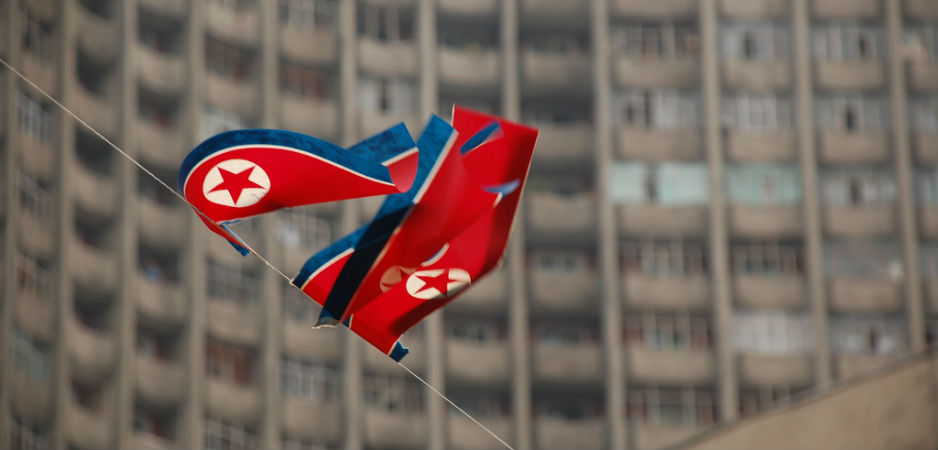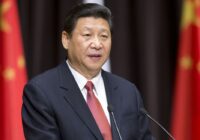US-China cooperation and a coherent strategy are necessary to roll back the nuclear ambitions of North Korea.
In response to North Korea’s fifth nuclear test in September, Chinese and American diplomats are negotiating sanctions to limit the nation’s energy trade, according to sources at the United Nations Security Council. This new effort to tighten sanctions will reportedly target Pyongyang’s ability to trade coal, iron ore and crude oil.
As North Korea’s only friendly neighbor and primary trading partner, China’s cooperation is key to establishing effective sanctions. Beijing is faced with a delicate balancing act, working to prevent a total collapse in North Korea, for humanitarian reasons, and also to avoid a potential Korean unification under American guidance.
However, continued North Korean belligerence has been taking a toll on its tenuous friendship with China. The nation’s stubborn refusal to halt advancement of its nuclear program has proved frustrating to China, leading China to reconsider its willingness to discuss sanctions with the United States and others. Pyongyang’s recent warning that it would use nuclear weapons if threatened should act as a catalyst to further US-China cooperation.
Unlike his father, who frequently visited China to ask for assistance during his last years, North Korean leader Kim Jong-un has not visited once since taking over in 2012. China’s apparent support of possible Security Council sanctions may indicate a broader shift in relations between the two countries, and perhaps even a new willingness for China to consider dealing with the political and humanitarian fallout of a North Korean collapse. This shift has also established new common ground between the United States and China.
Collapse of North Korea
Despite what some might think, a total North Korean collapse would be incredibly problematic for the US as well, since the country’s nuclear arsenal would need to be urgently secured in order to prevent it from falling into the wrong hands. Terrorist groups have attempted at least six times to steal nuclear weapons from Pakistan, a country with a poor security record but one that is still better than the chaos that would follow from Pyongyang’s collapse.
What’s more, the regime could even founder from centripetal forces, as the country is battling deadly floods, a cholera outbreak and dwindling agricultural production. Even without external sanctions, North Korea could unravel, presenting a challenging scenario for US strategists.
On the other hand, while the North Korean wagon is hurtling toward collapse, it will take others down with it if left unchecked. The country has deployed both “hard” and “soft” power tactics to strengthen its aggressive posture against the rest of the world.
In terms of “hard” power, US think tanks have warned that North Korea may already have enough material to develop 100 nuclear weapons by 2020. Recent satellite photos have uncovered evidence that North Korea could be constructing a nuclear submarine, increasing its ability to launch such attacks covertly and retain second-strike capability.
In September, North Korea fired three ballistic missiles that reached Japan’s air defense identification zone. Pyongyang’s arsenal is thought to include some 1,000 missiles, some of which may soon be capable of reaching the continental US. The inability of the United States to prevent this proliferation has led East Asian allies such as Japan and South Korea to question whether the US “nuclear umbrella” provides adequate security from North Korean belligerence.
North Korea also has employed “soft” power as leverage, using the nuclear threat to secure continued humanitarian aid from the international community, while maintaining its narrative of resistance to the “imperial” West. Pyongyang has recently taken advantage of discord between US allies, especially after Washington facilitated a resolution to the “comfort women” issue between Japan and South Korea in 2015. The deal, which included an official apology from Tokyo and established a fund for survivors, was intended to provide closure to tensions that have persisted since the end of World War II.
However, to prevent increased cooperation between US allies, North Korea has done everything possible to exploit these lasting tensions and prevent reconciliation. The Pyongyang government decried the deal a “humiliating agreement” for South Korea, and a South Korean nationalist group with alleged ties to North Korea has rallied anti-Japan sentiment there by demanding the agreement be canceled.
Well aware of the potential a united regional front against it could have, North Korea has taken every opportunity to use psychological warfare against the Association of Southeast Asian Nation (ASEAN) countries to prevent the formation of a more united front. North Korea will stop at nothing in its efforts to divide US allies in Asia.
The Next US President and Pyongyang
Cooperation between US allies in northeast Asia is, therefore, the key to countering threats and escalation on the part of Pyongyang. Much of that ability will depend on the next US administration, which is to be elected in November.
 Fair Observer provides you deep and diverse insights for free. Remember that we still have to pay for servers, website maintenance and much more. So, donate now to keep us free, fair and independent.
Fair Observer provides you deep and diverse insights for free. Remember that we still have to pay for servers, website maintenance and much more. So, donate now to keep us free, fair and independent.
[add-subscribe-form-320] Republican nominee Donald Trump’s campaign has pointed to a withdrawal from the region, calling the defense of Japan by US forces one-sided and too expensive for the US, a decision that North Korea immediately praised. He also implied that both Japan and South Korea would be “better off” if they had their own nukes—disregarding the fact that it would spark a global arms race with bleak consequences. Trump’s policy proposals add an element of unpredictability to a situation with an already high potential for trouble.
With North Korea taking advantage of tensions between allies, what is needed is a cautious and diplomatic approach to bring together these nations. Furthermore, the US must secure Chinese cooperation, which has proven elusive in the past.
Only cooperation and a coherent strategy can roll back North Korea’s nuclear ambitions. A Trump administration is grossly unfit for the task.
The views expressed in this article are the author’s own and do not necessarily reflect Fair Observer’s editorial policy.
Photo Credit: Stephan
Support Fair Observer
We rely on your support for our independence, diversity and quality.
For more than 10 years, Fair Observer has been free, fair and independent. No billionaire owns us, no advertisers control us. We are a reader-supported nonprofit. Unlike many other publications, we keep our content free for readers regardless of where they live or whether they can afford to pay. We have no paywalls and no ads.
In the post-truth era of fake news, echo chambers and filter bubbles, we publish a plurality of perspectives from around the world. Anyone can publish with us, but everyone goes through a rigorous editorial process. So, you get fact-checked, well-reasoned content instead of noise.
We publish 2,500+ voices from 90+ countries. We also conduct education and training programs
on subjects ranging from digital media and journalism to writing and critical thinking. This
doesn’t come cheap. Servers, editors, trainers and web developers cost
money.
Please consider supporting us on a regular basis as a recurring donor or a
sustaining member.
Will you support FO’s journalism?
We rely on your support for our independence, diversity and quality.






